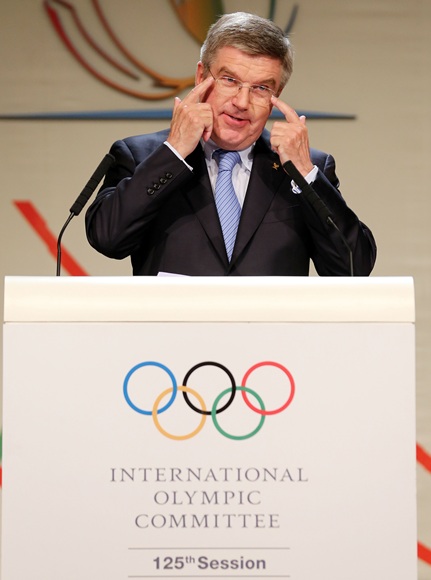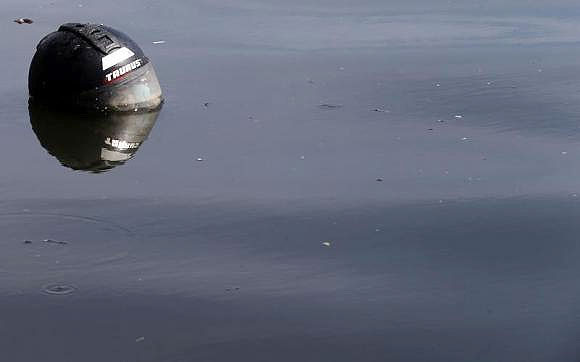Photographs: Ian Walton/Getty Images
The International Olympic Committee has announced a series of measures including a stronger presence in Rio de Janeiro to monitor progress and speed up lagging preparations for the 2016 Olympics, president Thomas Bach said on Wednesday.
Preparations for the 2016 Games, the first on the South American continent, have been plagued by delays, rising costs and bad communication between different levels of the Brazilian government and organisers.
International federations this week also criticised the government for what they said were constant delays and problems in communicating efficiently with the Games organising committee.
"We had the meeting (on Thursday) in a very constructive atmosphere with our partners from Rio," Bach told a news conference in Turkey at the end of a two-day executive board meeting.
"We then took some decisions about... how we can accelerate one way or another the works in Rio and how we can work even closer with the organising committee and the different levels of government."
Among the measures agreed were the setting up of a decision-making body involving the government, IOC and organisers so decisions are taken faster, and sending the IOC's Olympic Games executive director Gilbert Felli to Rio sooner than initially planned.
The frequency of assessment visits will also be increased, and the IOC will hire local project managers for the day-to-day execution of the plans and send specialised task forces consisting of experts to look into specific issues. These will be appointed in the coming weeks, Bach said.
Bach said organisers and the Mayor of Rio had been informed of the measures and welcomed them.
"This is not about giving out (yellow) cards. This is about ensuring the success of these Games. We still believe these Games can be very successful and we are undertaking all measures to make these Games successful.
"You have to take positive action and this is what we are doing with the measures I just outlined. This is not about the past but about 2016. We have to look into the future and not start the blame game for the past."
Rio officials welcomed the initiative as "appropriate" and vowed to work closely with IOC officials.
"Working as a team is the best and only way to make progress," Rio 2016 said in a statement. "We know that we have no time to lose and the large part of the schedule of commitments up to now has already been delivered.
"Since the IOC's last visit to Brazil, on 21 March, we have focused on the main issues highlighted, and progress has been made. The Rio 2016 Organising Committee continues to be committed to delivering an excellent Games, within agreed schedules."
Sailors have criticised the filthy waters
Image: A helmet is seen at the Guanabara Bay in Rio de JaneiroPhotographs: Ian Walton/Getty Images
However, although it claimed progress has been made, Rio has yet to announce which sphere of government is responsible for what projects.
The IOC visit three weeks ago said such a decision was "crucial" and wanted it to happen within days. But no announcement has been forthcoming, even though some officials met with President Dilma Rousseff on Wednesday.
Although Rio won the right to host the event back in 2009, construction work at venues where eight events will take place has yet to start and the pace of progress at others is slow.
Sailors have criticised the filthy waters where the sailing events will take place and strikes have crippled some projects.
Eyewitnesses said shots were fired on Monday after fighting broke out between security guards and construction workers who downed tools and blocked roads outside the Olympic Park, one of the main venues, although no one was injured in the melee.
"We need all our energy because we share the concerns," said Bach.
"What we are doing is to show ways with our experience in organising Games how the different levels of government can work better together, how seamless cooperation can be ensured.
"Once after the closing ceremony of a successful Rio Games we can come back to this question (of who is to blame) and speak about the responsibility. Now we will not act in a responsible way if we look too much into the past."




Comment
article